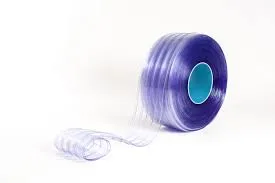pvc soft film
Understanding PVC Soft Film Applications, Benefits, and Considerations
Polyvinyl chloride (PVC) soft film is a versatile material widely utilized in various industries due to its unique properties and adaptability. Often distinguished by its flexible nature, PVC soft film is ideal for applications requiring durability, transparency, and resistance to environmental factors. This article explores the features, benefits, applications, and some considerations regarding PVC soft film.
What is PVC Soft Film?
PVC soft film is produced from polyvinyl chloride, a synthetic plastic polymer. The soft aspect refers to its flexible and pliable form, which contrasts with the rigid varieties of PVC commonly used in construction and piping. The production process typically involves the addition of plasticizers, which enhance flexibility and workability. This film can be manufactured in several thicknesses and can be transparent or colored, catering to specific needs across various sectors.
Key Properties
1. Flexibility and Strength One of the most significant attributes of PVC soft film is its flexibility, which allows it to conform easily to different shapes and surfaces. Despite its softness, it maintains considerable tensile strength, making it suitable for demanding applications.
2. Chemical Resistance PVC soft film exhibits excellent resistance to a range of chemicals, including acids, bases, and oils. This property helps extend the life of products made from this material, particularly in industrial settings.
3. Weather Resistance The film performs well against environmental factors, including UV light and moisture, making it suitable for both indoor and outdoor applications.
4. Ease of Processing PVC soft film can be processed using various techniques such as extrusion, calendaring, and lamination. This adaptability allows manufacturers to create customized products tailored to specific applications.
5. Cost-Effective Compared to other materials that offer similar properties, PVC soft film is relatively inexpensive to produce and purchase, contributing to its widespread use.
Applications
pvc soft film

1. Packaging One of the most common applications for PVC soft film is packaging. Its transparency allows for excellent visibility of the product inside, making it a popular choice for food packaging, medical supplies, and consumer goods. Additionally, its moisture barrier properties help preserve product freshness.
2. Protective Covers The flexibility and toughness of PVC soft film make it ideal for protective covers for a range of items, including furniture, vehicles, and machinery. These covers protect against dust, moisture, and other environmental factors.
3. Medical Applications In the medical field, PVC soft film is used in a variety of applications, including medical bags, tubing, and device covering. Its biocompatibility and chemical resistance make it an excellent choice for devices that come into contact with bodily fluids.
4. Signage and Displays The clarity and printability of PVC soft film make it a preferred material for creating signs and displays. It is often used in retail environments for point-of-sale displays, banners, and posters.
5. Construction In the construction industry, PVC soft film is used for vapor barriers, roofing membranes, and other applications that require a durable, weather-resistant material.
Considerations
While PVC soft film offers numerous benefits, there are some considerations to keep in mind. The environmental impact of PVC production and disposal has raised concerns due to potential leaching of harmful chemicals. Manufacturers and users are urged to focus on sustainable practices, including recycling and responsible disposal methods.
Furthermore, the use of plasticizers in soft PVC can pose health risks if the film is used in food contact applications without appropriate safety measures. It is crucial to ensure that any PVC soft film products intended for such uses are compliant with safety regulations.
Conclusion
In summary, PVC soft film is a multifaceted material with a broad range of applications across various sectors. Its unique properties, including flexibility, chemical resistance, and cost-effectiveness, make it an attractive choice for many industries. However, as with any material, it is essential to consider the environmental and health implications associated with its use. In an era where sustainability is increasingly paramount, ongoing innovation and responsible practices will be critical in maximizing the benefits of PVC soft film while minimizing its drawbacks.
-
WANMAO Super Clear PVC Sheet & Transparent Cover FilmNewsAug.26,2025
-
Durable Welding Strip Curtain Rolls for Safety & EfficiencyNewsAug.21,2025
-
Heavy Duty Cold Room PVC Strip Curtains - Energy Efficient SolutionsNewsAug.19,2025
-
Durable PVC Curtain Track - Easy Install & Smooth GlidingNewsAug.18,2025
-
Durable PVC Strip Curtain Hanger | Stainless Steel MountNewsAug.17,2025
-
PVC Folding Curtain: Space-Saving & Stylish PrivacyNewsAug.16,2025



